Racial Equity
Catalyzed by a 2017 New York University study that showed deep racial disparities in educational and life outcomes for children in the city, the W.K. Kellogg Foundation worked with Battle Creek Public Schools to ensure its transformation plan is rooted in racial equity, an aspirational pursuit that all people have equal opportunity to experience well-being in life.
The district is working to remove barriers to education for students of color, using key metrics to measure success. Over the last several years, the district has implemented a suite of efforts designed to reduce racial disparities and ensure students of color can thrive. Through this work with BCPS, we’ve seen that creating more equitable educational outcomes for students of color isn’t a linear process: it involves constant evaluation, collaboration and innovation to narrow the gap, especially in the face of unexpected roadblocks like a global pandemic. At the same time, the district is aware that the inequities their students face due to systemic racism start with root societal issues outside of BCPS. With that in mind, Superintendent Carter and other district leaders are active in conversations about how to make Michigan’s broader education system more equitable as a whole.
Local Equity Data Critical to District Plans
The 2017 study showed deep racial disparities that the transformation seeks to address. Within the small city of Battle Creek, there are four school districts, three of which are majority white, and one of which, BCPS, is home to a majority of students of color. Because of Michigan’s school choice policies, the demographics of the student bodies of these districts do not match the demographics of the residents living in the districts’ service areas. Over the past decade, wealthier and whiter students have left BCPS to attend other local districts. BCPS, in turn, has a higher population of students of color, students living in poverty as well as students with greater needs.
Other key disparities uncovered by the study include:
Student Loss
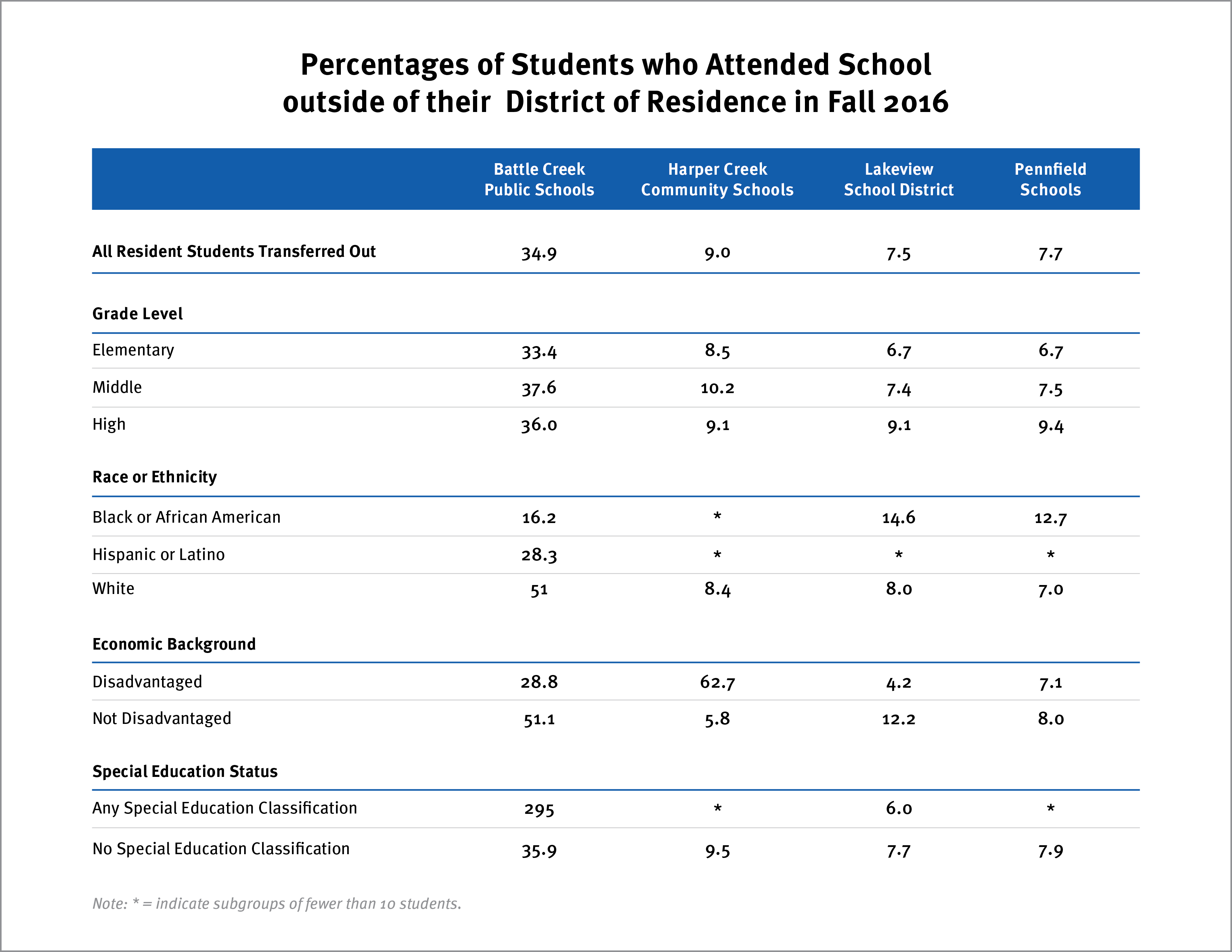
College and Career Readiness
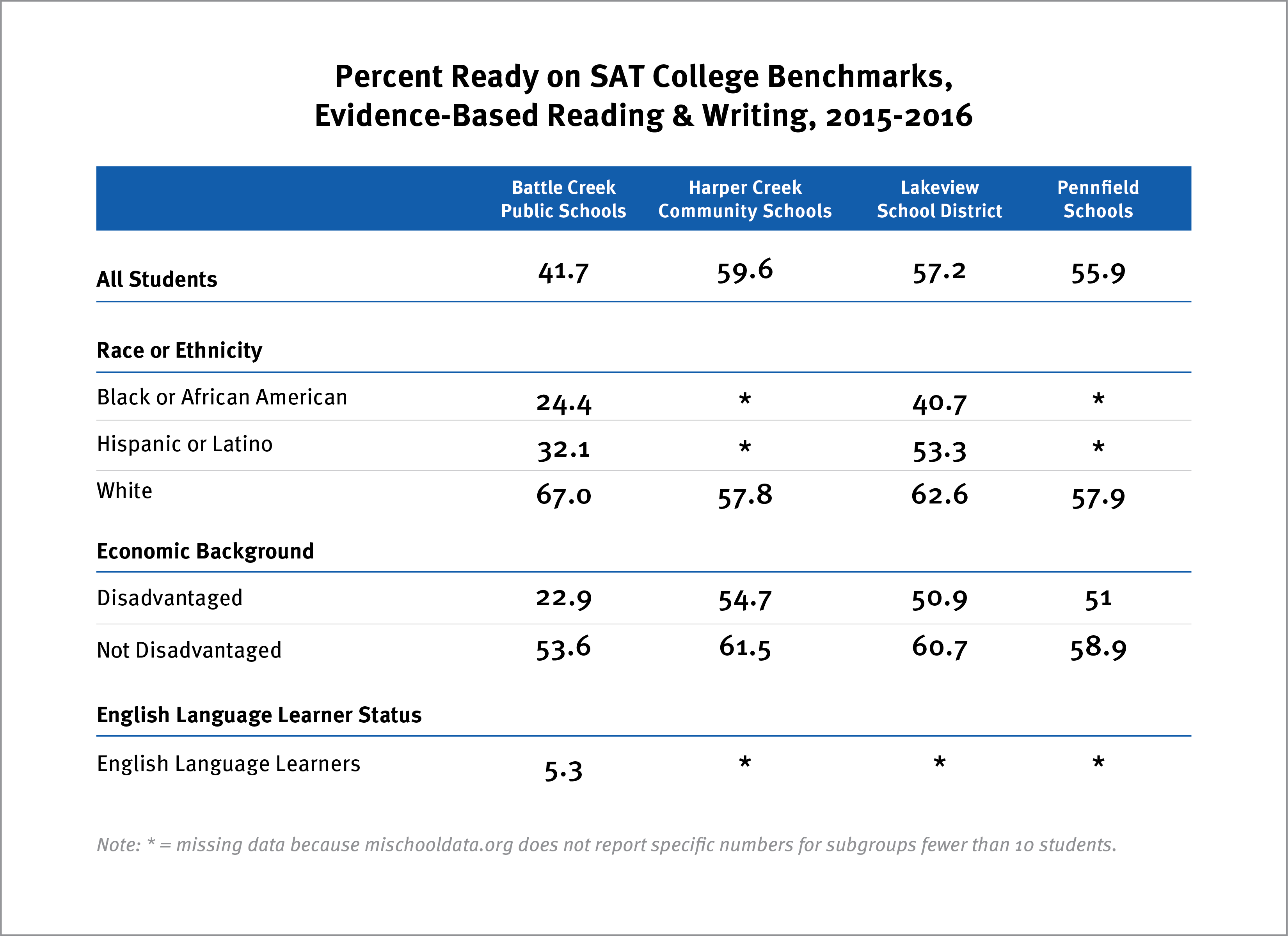
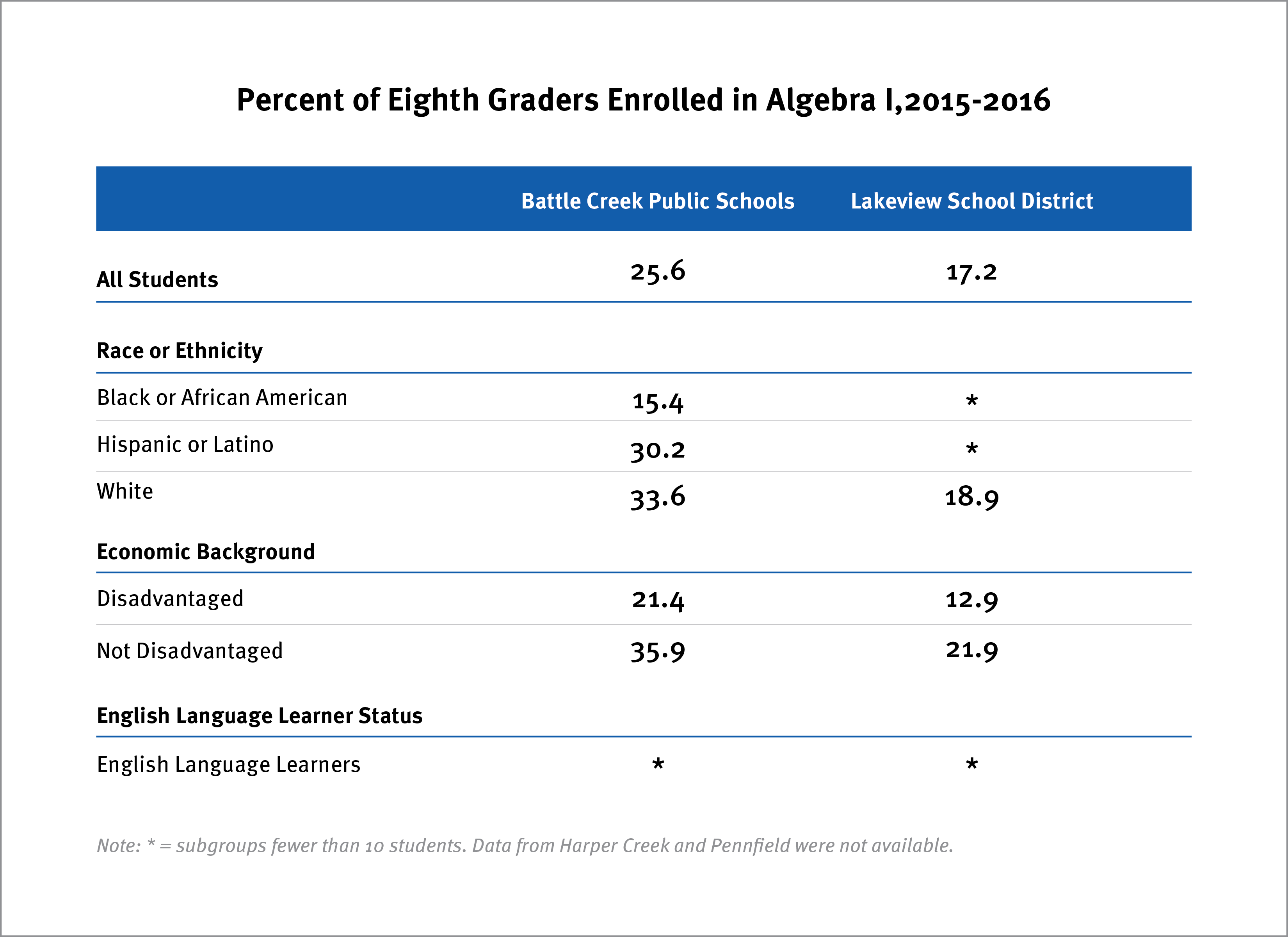
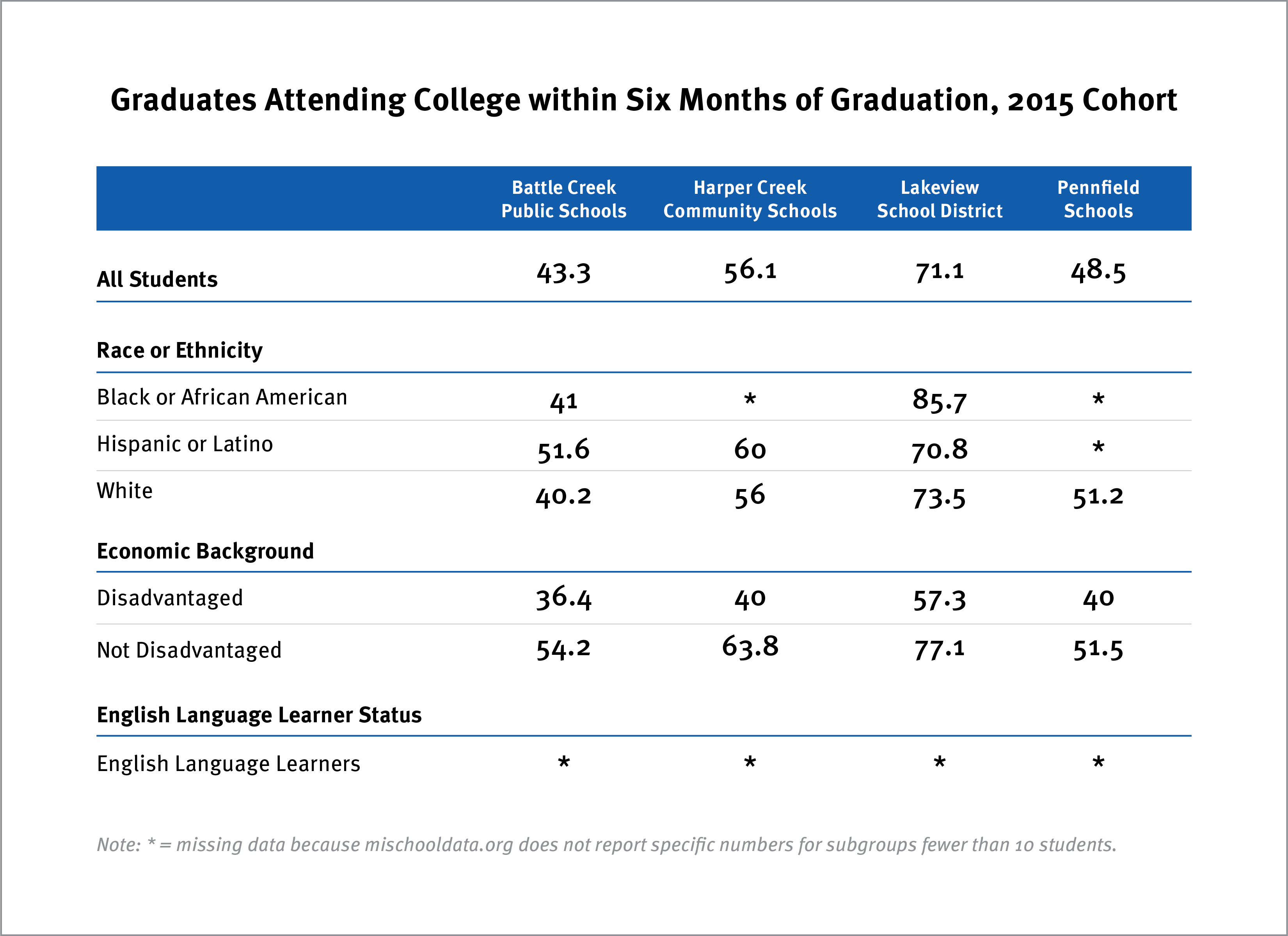
Equity Training
Tackling racial equity involves examining the ways that implicit bias and traditional, non-culturally competent teaching practices negatively impact students. When the transformation first began, the term “equity” was not widely used or understood. In the earlier years of the five-year transformation, the district focused on building a shared understanding among staff of where students are currently situated, the unique barriers some students face and why the work to remove barriers is part of teaching.
Overwhelmingly, educators in the district were enthusiastic about participating in training and development to help them promote equity by changing their own tactics and approaches. Unfortunately, progress has been threatened by COVID-related staff departures in the later years of the transformation, requiring the constant need to train new teachers and staff in equitable approaches to matters including discipline. Moving ahead, this focus on “changing hearts and minds” (as Superintendent Carter puts it) will shift to changing practices and exploring building-level approaches to advance equity.
Even before the start of the five-year grant partnership, WKKF and BCPS made an intentional choice to build a strong core of school leaders well-versed in equity by partnering with the National Equity Project (NEP), an organization dedicated to helping leaders increase their awareness of equity issues and provide practical approaches to better understand people with different backgrounds, cultures and experiences. NEP has worked with district leadership on changing practices and policies to create more inclusive and equitable school communities.
Increasing teachers’ competency in equity and trauma-informed practices is key to overcoming implicit bias and changing school climate. WKKF grant dollars are used to pay teachers a stipend for participation in the Transformational Teacher Institute (TTI), which offers professional development through in-person or virtual sessions that cover equitable practices, trauma-informed practices, social justice, restorative justice and creating welcoming environments. The majority of BCPS teachers now participate in TTI sessions, and the number of participants has been steadily increasing: In 2021-22, 78% of teachers participated, a major increase from 43% during the program’s first year in 2017-18.
2/3
of teachers who attended changed teaching practices as a result (2021-22 school year)
Approaches to School Climate and Discipline
Early on, BCPS leaders grappled with data that showed Black students were more likely to be disciplined or met with harsher punishments than students of other races for similar incidents. As a result, BCPS leaders concluded that equity-informed work could not be successful without changing the district’s approach to student discipline and school climate as a whole. With a commitment to racial equity driving their work, over the past five years, BCPS has retrained staff, made key hires and introduced new practices aimed at restorative justice in order to improve school climate and eliminate racial disparities in discipline practices.
While the district continues to seek growth in all measures of school climate and student behavior, student discipline incidents and numbers have risen and fallen as the challenges of the COVID-19 pandemic have threatened progress. Missed social-emotional development combined with trauma rendered many students unable to cope with school schedules and expectations when they returned to the classrooms, exacerbating school climate challenges.
$48,316
As the pandemic unfolded during the 2019-20 school year, BCPS recognized that in order for students to be successful, they needed to be able to meet their most basic needs, including nutrition. According to state data, 72% of BCPS students qualify for free or reduced lunches, making remote learning a serious risk for BCPS students’ nutritional health. In spring 2020, the district began distributing meals to students and their families and accelerated that work in the 2020-21 school year, working relentlessly to distribute 1,276,238 meals between August 2020 and May 2021. In the 2021-22 school year, with all K-12 students back in the classroom full time, BCPS paused its meal distribution program.
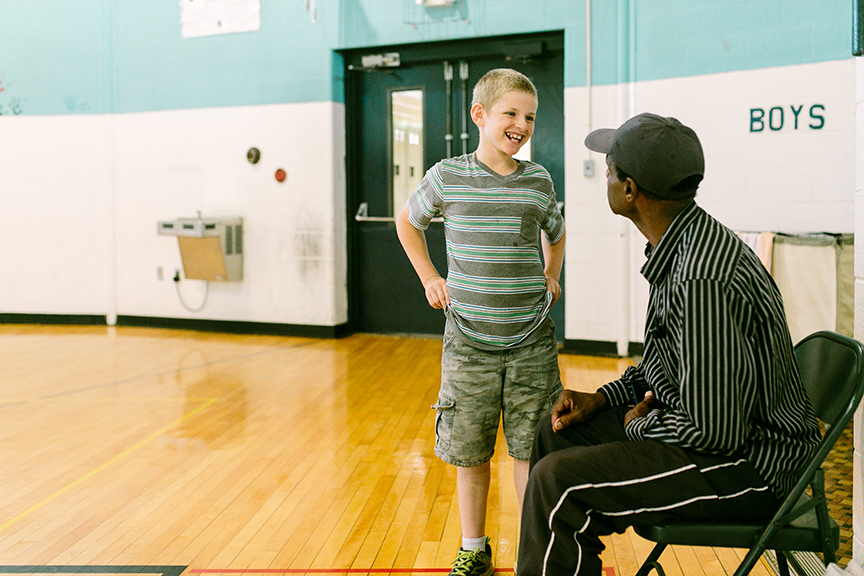
Reinventing school disciplinary practices involves redefining school safety and acknowledging the harm caused to Black and Brown students as a result of the “school-to-prison pipeline,” a name for what many people have experienced as students when incidents in schools have funneled them into the criminal legal system. With this in mind, BCPS security staff were given a new role — Bearcat coaches — and trained in de-escalation, mentorship, restorative practices and tactics for building trusting relationships.
Bearcat coaches carry a caseload of students who may benefit from an additional nurturing adult relationship and serve as a first point of contact with students who need extra behavioral help. Rather than sending a student into the hall or to the office, teachers can turn to a Bearcat coach to pull the student aside and talk through issues so they can rejoin class. This increases the amount of both teaching and learning time. The position was created in the first year of the transformation process, with 14 coaches hired across the district. When the COVID-19 pandemic hit, Bearcat coaches also served as an essential resource to help the district adjust and respond to the challenges of the moment, transitioning to cover classrooms in response to acute staffing needs in the 2021-22 school year. By year five, the number of Bearcat coaches increased to 27.
In the first year of the transformation, the district created a family advocate position, a person at each school responsible for building relationships with families to increase trust, identify family needs and connect them with support. In the third year of the transformation, BCPS leaders began a partnership with Communities in Schools (CIS). The CIS model utilizes school-based site coordinators (many of them former family advocates) who refer families to community resources and in turn, increases access to resources like food assistance, transportation assistance, laundry vouchers, mental health and medical services and dental care. Site coordinators were especially valuable to help the district navigate the ongoing challenges of the pandemic, delivering food to families, conducting home visits to reach students who hadn’t been engaging with remote learning, and connecting families to transportation resources.
In the 2021-22 school year, CIS distributed $48,316 worth of supplies to cover families’ basic needs and paired 59 students with a reading buddy.
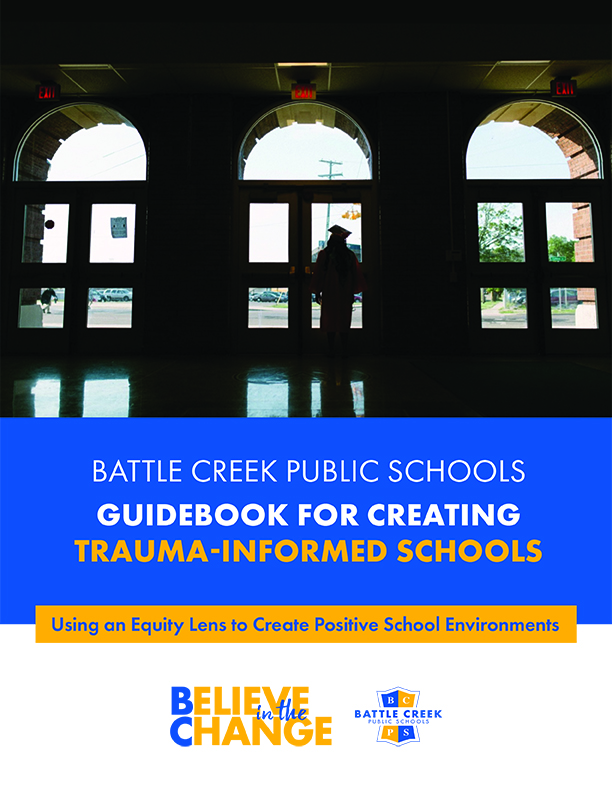
The Guidebook for Creating Trauma-Informed Schools, which BCPS released in the third year of the transformation, was created to give teachers clear guidance on how to incorporate a trauma-informed approach into their classrooms and establish processes and procedures for supporting students. The guidebook rolled out a new response process based around Student Success Teams (SST) — a problem-solving group including Bearcat coaches, interventionists, CIS site coordinators and more. The guidebook offers scenario-based flowcharts to walk staff through SST processes, while offering useful resources for staff like referral forms for students requiring additional support. Overall, the percentage of teachers who feel they have adequate training to support students dealing with trauma rose significantly from 52% in spring 2018 to 68% in spring 2022.
Since the guidebook was released, one learning has been that it takes a great deal of support to fully train school staff in utilizing these new systems, including the SST. When it was first introduced, teachers and staff felt that there wasn’t enough professional development offered on the new approaches. Implementation of these practices was not consistent, and teacher and administrative staff turnover undermined the effectiveness of equity-focused training offerings. Superintendent Kimberly Carter said, “We need to provide more support around the implementation of those philosophies and understandings in a way that has practical application on the ground.”
Research shows that exclusionary practices (any punishment that pulls a student out of the classroom) both harm student learning and disproportionately impact students of color. The most successful approach to equity includes reducing exclusionary practices to keep students in the classrooms and learning for as much of the day as possible. BCPS is working to minimize exclusion by implementing restorative practices that de-escalate conflict, repair relationships and help to prevent future challenges.
Data shows that setbacks are part of the process of creating cultural change, and provide key moments for learning. While the second year of the transformation saw progress, that trend did not continue into the third year: In fall 2019, there were 815 out-of-school suspensions compared to 468 suspensions in fall 2018, and 3,741 total disciplinary incidents in the same period compared to 3,125 in fall 2018. Disciplinary data from 2020 onwards is less directly comparable because of the differences in instructional models during the pandemic that hit in spring 2020, though this may have offered an interesting lesson on school climate: in 2020-21, disciplinary incidents actually decreased at the elementary level — a change that many teachers attributed to pandemic-related instructional models, including cohorts and one-on-one engagement. Disciplinary incidents continued to fall in 2021-22, however, district staff and administration perceived that the pandemic created far more problems due to student trauma and the re-introduction to a full-time, in-person school schedule.
As alternatives to the often harmful nature of exclusionary practices, BCPS has sought to create positive spaces for students when classroom intervention isn’t an option. In Student Success Centers (SSCs), students learn to manage their own emotions in a safe and comfortable space. In the 2018-19 school year, all schools implemented student success centers.
In the 2019–20 school year, 61% of teachers agreed that the student success centers were making a positive change in their school, according to AIR data.
Other new approaches have included a “behavior modification room” at Northwestern Middle School (Northwestern), providing a place where students who are having a hard time responding to any kind of stimulus within the school can go to decompress and learn replacement behaviors, and a late afternoon program offered at a few schools in the 2021-22 school year called the Twilight School, blending academics, work with behavior specialists and time with a CIS coordinator to create “success plans” for students who require the most intensive level of support.
BCPS partners with True Success, an evidence-based social skills curriculum designed to unleash students’ character potential, developing vocabulary and skills in areas like compassion, integrity, courage and grit. By integrating these character-building lessons throughout the curriculum during dedicated class time, students are better equipped to address obstacles, heal from potential trauma and work toward positive school outcomes.
BCPS uses a system that rewards students immediately following positive behavior, making that behavior more likely to occur in the future. For example, in order to improve Northwestern’s school climate, the team adopted a positive behavior system called the “Northwestern Way” in 2018. This approach includes a “Bearcat Bucks” system to reward students for showing up ready to learn and for meeting behavior expectations. Moving forward, Northwestern may not continue these practices however as it will be transformed into a K–12 arts academy thanks to a bond approved by voters in November 2021.
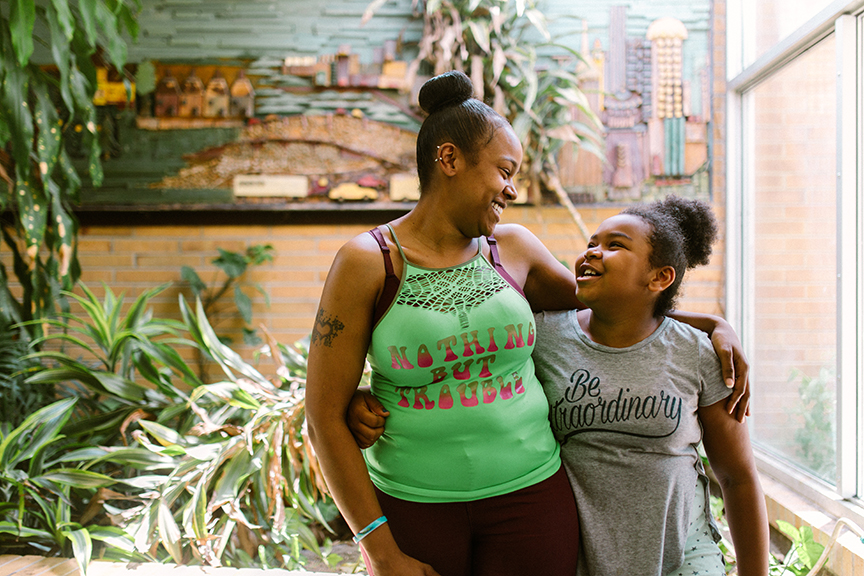
Restorative conversations were used 1,163 times in year three, and contributed to a decrease in detentions (from 1,091 detentions in 2018 to 370 in 2019).
Individualized Approaches to Learning and Trust
To build an educational environment that centers racial equity, BCPS aims to “see every student by name, need, and strength.” This individualized education effort is rooted in culturally-responsive teaching practices and the understanding that every student arrives at school with different experiences and needs. BCPS acknowledges that many students and families have experienced broken promises from government institutions and authority figures and that many families’ experiences with education and school have been punitive and criminalizing, especially for Black people. The district’s work is rooted in an understanding that it has to build and earn student and family trust.
In understanding that racial equity means meeting students where they are, BCPS has hired new people and implemented new structures and processes to build trusting school communities across the district.
While overall student achievement across the district is trending up, BCPS noticed that achievement among Black boys was flat or falling, indicating a gap in the support structures for these students. Despite interventions, this gap continues to exist: According to fall 2021 NWEA MAP reading scores, Black BCPS students were in the 29th percentile, compared with white students who were in the 38th percentile. At this stage, approaches to interventions vary building-to-building, but district leaders are exploring options to make it more streamlined, including a book club specifically for Black male middle schoolers and expanding culturally-relevant teaching practices.
In the first year of the transformation, BCPS hired 15 master’s level specialists in child behavioral psychology and response so that each school has at least one behavior specialist on staff. These specialists provide support and training to teachers to help them deal with their own trauma, support them to troubleshoot challenges and also work directly with students.
Before the transformation began in 2017, BCPS was inconsistent about having translations available in Spanish and Burmese. Over the past five years, BCPS has made major investments in language resources to serve Spanish- and Burmese-speaking families, including certifying tutors as interpreters, partnering with local community groups like the Burma Center and Voces, adding Burmese-speaking staff to schools, creating a dedicated position devoted to English Language Learner (ELL) engagement and becoming one of just a few districts in the state of Michigan to offer live interpretation for board meetings. According to a spring 2022 survey, roughly six out of 10 Spanish- and Burmese-speaking parents recalled communications in their home language. Overall, Burmese parents are the most impressed by the transformations they see or hear about taking place.
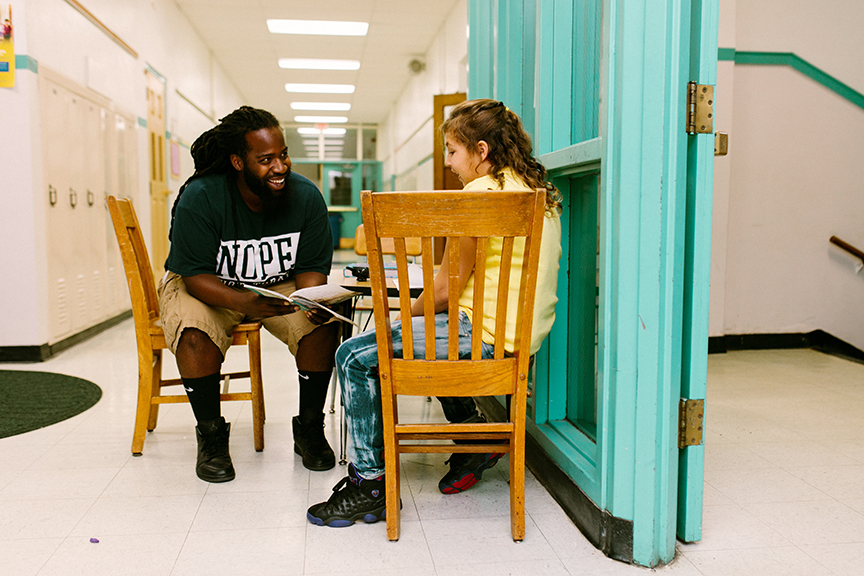
BCPS hired student success specialists to work in each school’s student success center, a classroom in each building dedicated to supporting students as they learn the skills necessary to comfortably regulate their own emotions. Success specialists serve as a backup for teachers and a guiding, trusted presence in students’ lives to help them learn how to regulate their minds, bodies and emotions in order to find success in the classroom.
Throughout the transformation, BCPS has launched new schools, initiatives and programs to broaden the types of educational and career opportunities available for students. The many options enable students to find the paths where they are more likely to feel engaged and to succeed, supporting the district’s equity aims. Opportunities available to BCPS students include an International Baccalaureate elementary school experience, kindergarten readiness programming, STEM education, career technical training, and more.
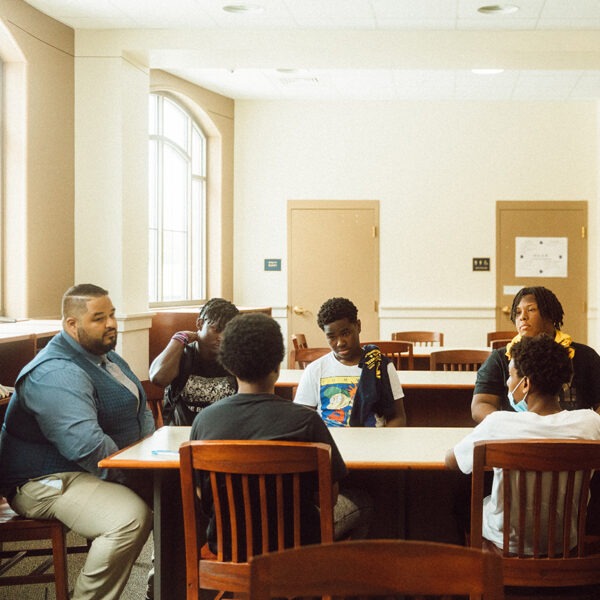
In the first year of the transformation, BCPS reopened its non-traditional high school as W.K. Kellogg Preparatory High School (W.K. Prep), a student-centered and relationship-driven high school experience designed especially for students who need more flexibility or who might have otherwise been pushed out of a more traditional high school environment. W.K. Prep is the only program of its kind in the Battle Creek area — offering a flexible schedule and individualized school environment for students balancing jobs and family obligations.

Expert staff, teachers and counselors work alongside small groups of students, offering tutoring, mentoring and personalized help when and how students need it most. The flexible W.K. Prep model translated extremely well to a virtual environment, helping students continue progressing during the COVID-19 pandemic.
The Bearcat Health Team is a collaboration between schools, community mental health services, the court system and Child Protective Services to meet the needs of young people who are involved with the court system, as well as their families, who often require law enforcement and juvenile justice to be a part of the plan. Bearcat Health meets regularly to discuss specific student cases that need high-touch intervention. Bearcat Health served a total of 288 students in 2021-22.
This partnership with the Battle Creek Police Department alerts the schools if a student has been involved in a law enforcement incident or a traumatic event. If a law enforcement officer encounters a child during a call, that child’s information is forwarded to the school before the school bell rings the next day. The school implements individual, class and whole school trauma-sensitive curricula so that traumatized children are “Handled with Care.” If a child needs more intervention, on-site trauma-focused mental healthcare is available at the school.
In mainstream curricula, core subjects are traditionally taught from a Eurocentric perspective that minimizes the contributions of people of color. When curricula do touch upon Black history and histories of other communities of color, it is often in the context of slavery, discrimination, war and colonization. Recognizing that this can traumatize students of color, BCPS staff are actively exploring approaches that celebrate Black, Latinx, Asian and Indigenous cultures and histories.
For the first time in the 2021-22 school year, BCPS launched student surveys through its partnership with the National Equity Project at three schools – Valley View Elementary, Post-Franklin Elementary and BCCHS. Questions asked students about teaching styles, teacher/student relationships, the connection between the curriculum to a student’s own life, feelings of respect in the classroom and more. The surveys are being used to capture student feedback so teachers and staff can adjust approaches to better meet student needs and improve student outcomes — and early results show increased engagement.
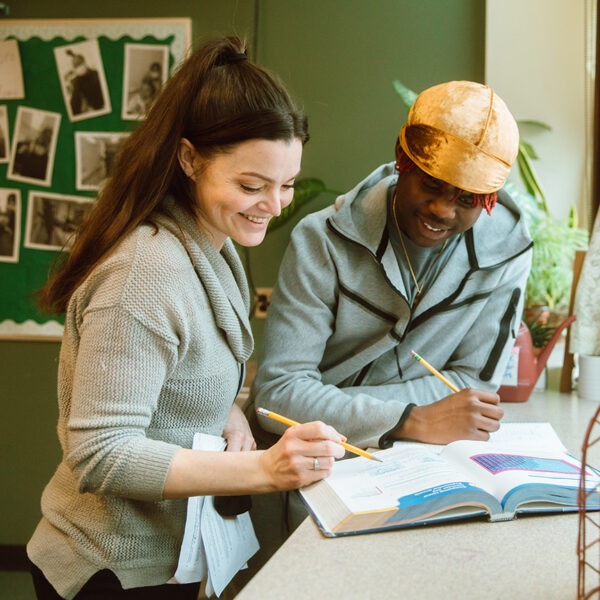
“Once you know that an inequity exists, you have to respond to it. Before, we sometimes only had a hunch about certain practices, but data has given us tangible information to use when we’re having conversations about progress and about students.”
Mitch Fowler, Director of Technology, Data and Innovation
Data Analysis/ Tracking Progress
Equity requires accountability — so BCPS uses a data-driven approach. The district’s transformation team ensures that all administrators collect data on a wide range of measures, including academic improvement, student experience surveys, discipline, attendance, career choices, literacy and much more. BCPS also partners with the American Institute for Research (AIR), which specializes in measuring education reform efforts at school districts across the country. AIR analyzes student achievement and discipline data, as well as conducts an annual teacher survey, administers parent focus groups, conducts school site visits, and interviews administrators, teachers and staff.
At BCPS, the focus is on making the data actionable. At weekly meetings, BCPS leadership identifies how measures are breaking down along racial lines, such as the number of suspensions, the effectiveness of new trauma-informed practices, student attendance or grade level proficiency, and where additional support is needed.
In the analyses of this data, BCPS continues to find racial disparities that still exist within their schools, despite all their proactive efforts to work toward racial equity, especially given the cumulative impact of the pandemic. It is undeniable that overall academic achievement and attendance worsened as a result of the pandemic, but the supports and innovations built by the district before the pandemic helped students and staff stay more resilient than they would have otherwise been. BCPS was able to avert the most dire predictions of severe learning loss because of their transformation efforts, and community partners stepped up in unprecedented ways to help students and families cope with social, emotional and financial challenges. There is still a lot of work to do, but using this tracking helps BCPS address disparities and fosters innovative solutions as part of an ongoing and collaborative process.